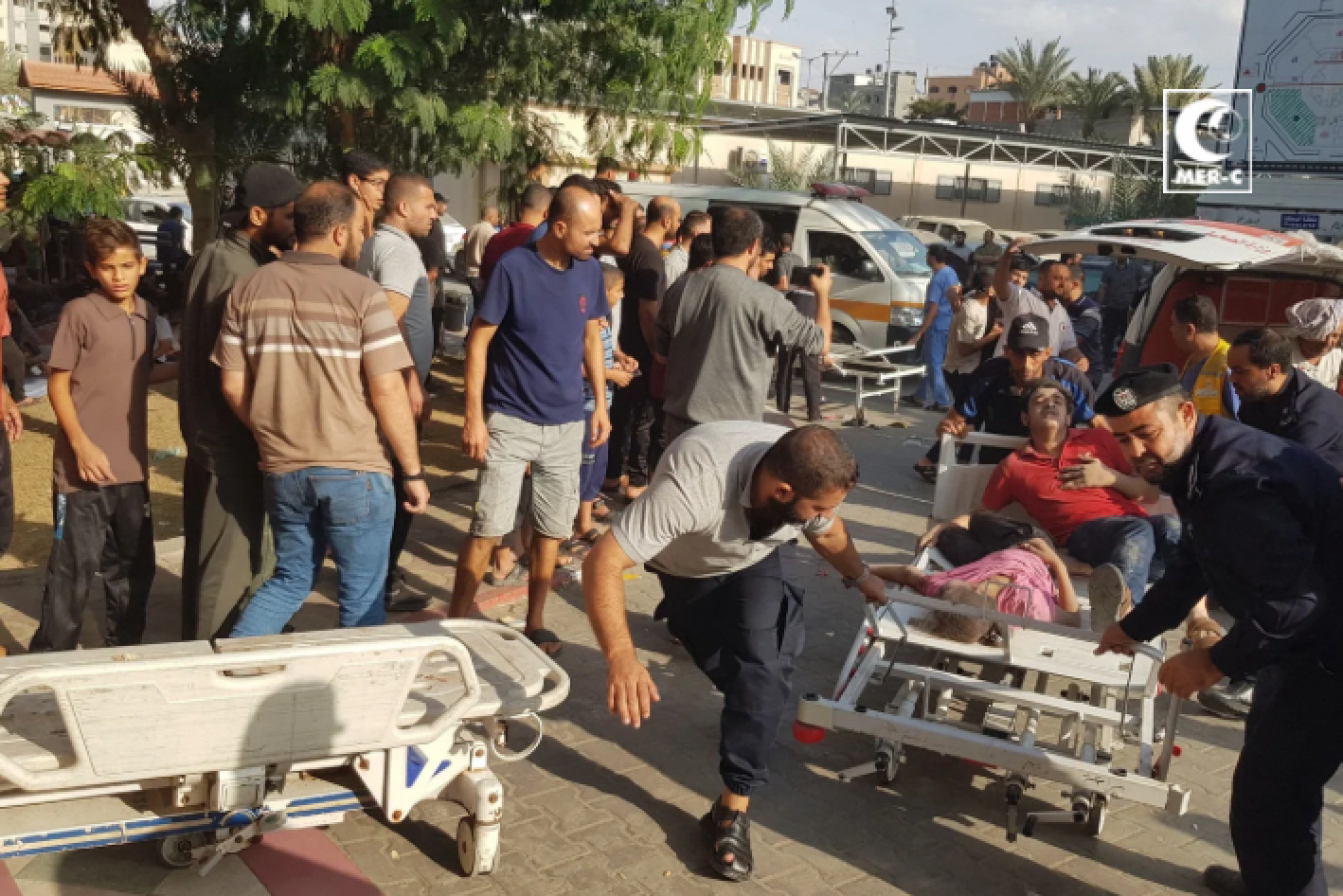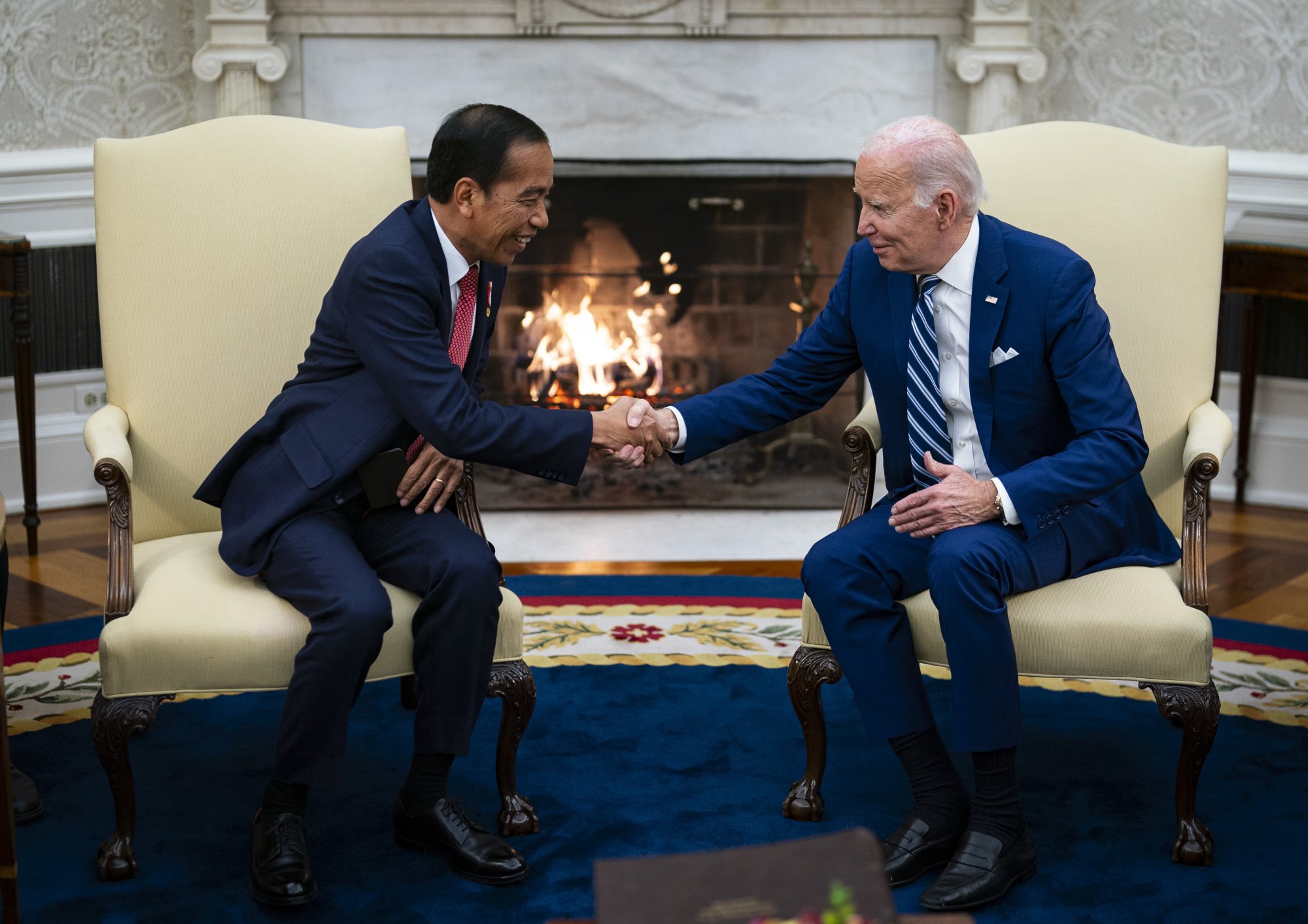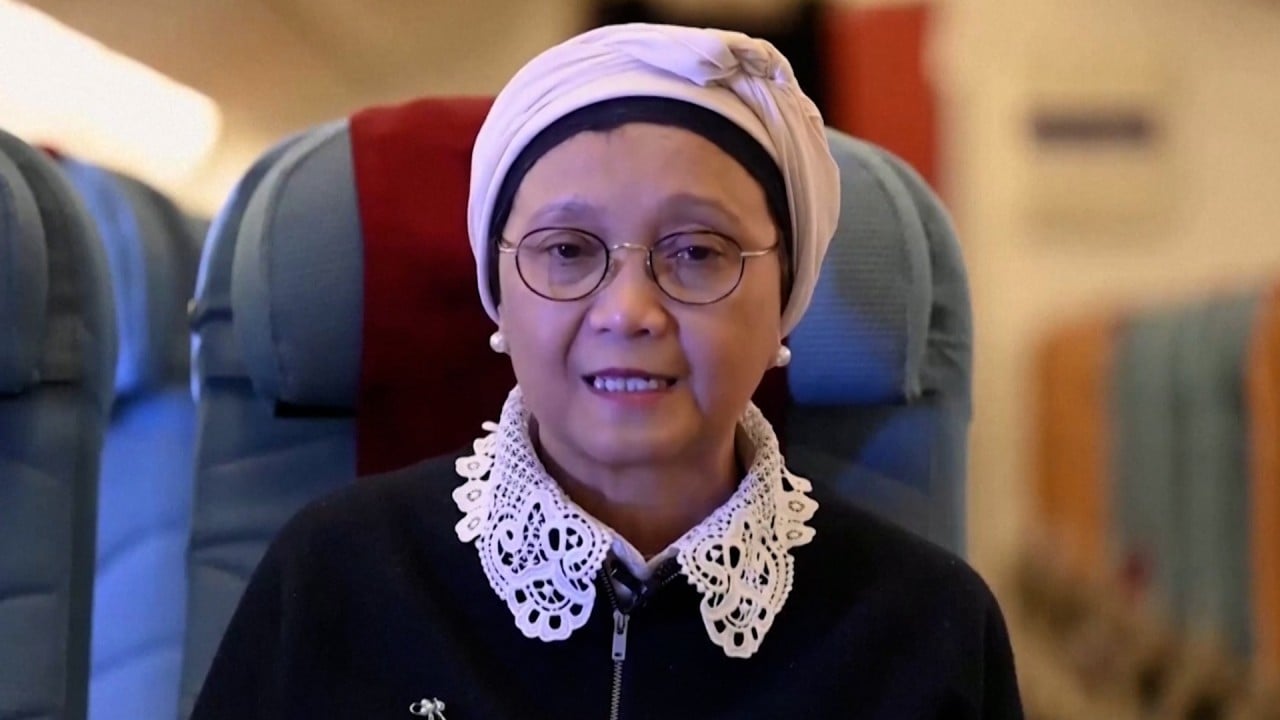Israel-Gaza war: Indonesian Hospital forced to turn away patients as diesel, medicines run out
[ad_1]
Since the war broke out on October 7, workers and volunteers at the Indonesian Hospital in northern Gaza had tended to thousands of Palestinians under increasingly risky conditions. Lack of medicines also forced doctors to amputate some patients’ body parts as their organs were rotting.
One local staff member was killed on the first day of Israel’s attack on Gaza following Hamas’ surprise assault, while an Israeli raid on October 26 also killed the families of two Palestinian doctors.
There are also fears about the fates of three Indonesian volunteers after Israel imposed a communications blackout last weekend that rendered them uncontactable. Messages sent by This Week in Asia to Fikri Rofiul Haq and Farid Zanjabil Al Ayyubi, two of the volunteers, remained undelivered as of Friday.

Sarbini said he last heard from the trio on November 11, when they sent several videos detailing how doctors and volunteers were working against the odds to keep services open.
“They told us about the situation at the hospital, that it was functioning in total darkness. The medicines had run out, the hospital was crowded,” said Sarbini, who is based in Jakarta. “They said residents [in the area] had moved to the hospital because of the terror of Israeli bombs that continued every night.”
In the videos, which Mer-C shared with This Week in Asia, Fikri is seen showing a row of white tents on the hospital’s front yard, which were set up by Gaza’s health authority in a bid to clear the facility’s choked halls.
“The number of victims can no longer be handled,” Fikri said in one clip dated November 10. “Many injured victims are treated in the hallways. They don’t get a room because there was a crowd of injured victims due to Israel’s bombings on Thursday night.
“More than 1,700 people have died in the Indonesian Hospital. More than 600 were children and more than 300 were women. More than 4,500 injured victims were also rushed to the hospital,” he said.
An Israeli strike on November 9 was only “100 metres from the Indonesian Hospital”, Fikri said in another video. “The stones [from bombed roads] bounced into the hospital area because of how powerful the attack was,” he added, pointing to a huge hole in a nearby road.
According to a statement by the World Health Organization on November 14, almost two-thirds of Gaza’s 36 hospitals are no longer running. Those still operational have to make do with few resources. Israel has cut off access to diesel, and it is logistically challenging for health workers to transfer critically hurt patients to Egypt.
When a power outage struck on the morning of November 10, volunteers at the Indonesian Hospital tried to keep the power generators going with cooking oil. But Fikri later said in a video post on Mer-C’s Instagram account: “This experiment did not work for the two large generators owned by the Indonesian Hospital; it only worked for the small generators that were brought to the hospital a while ago.”
The United Nations Relief and Works Agency (UNRWA) for Palestine Refugees said a truck carrying more than 23,000 litres of diesel arrived in Gaza on Wednesday, the first since the conflict broke, but Israel forbids its use for water pumps or Gaza hospitals, only for relaying aid.
With communications out and in the absence of fuel, UNRWA said no aid would be delivered to Palestinians on Friday via the Rafah crossing with Egypt.
How an Indonesian hospital is struggling to function amid Israel-Gaza war
How an Indonesian hospital is struggling to function amid Israel-Gaza war
In addition to health services, the Indonesian Hospital also supplied food to around 300 healthcare workers and residents taking shelter at the hospital, Sarbini said.
He estimated there were also around 2,000 Gaza residents on Thursday crowding the hospital’s halls on all four levels.
As of Friday, the main building of the hospital was still standing, Sarbini said, although some ceilings had collapsed, exposing some electricity cables, and most windows had been shattered.
Earlier on November 7, American nurse Emily Callahan told broadcaster CNN that the hospital’s Palestinian staff had vowed to remain despite the Israeli onslaught.
Callahan, a nurse with Doctors Without Borders who worked at the Indonesian Hospital before being evacuated to the United States earlier this month, said she sent a message asking her nursing staff if they had evacuated to the south of Gaza.
“The only answer I got was: ‘This is our community. This is our family, these are our friends. If they’re going to kill us, we’re going to die saving as many people as we can’”, Callahan said.
In the cross hairs
Before shutting down its services, the Indonesian Hospital had been scrutinised by Israel, which last week accused the facility of sitting atop a network of Hamas tunnels and being located near a missile launch pad.
Mer-C and the Indonesian foreign ministry vehemently rejected the claim.
“The Indonesian Hospital in Gaza is a facility built by the Indonesian people entirely for humanitarian purposes and to serve the medical needs of the Palestinian people in Gaza. The hospital is currently fully managed by the Palestinian Authority in Gaza, although from time to time, there are always Indonesian volunteers who help,” the ministry said in a statement on November 7.
Sarbini said the accusation showed “Israel lies and distorts a lot of facts”.
‘Peace only on paper’: Gaza war sharpens Arab world’s grievances against Israel
‘Peace only on paper’: Gaza war sharpens Arab world’s grievances against Israel
On Wednesday, Israel’s military said it had carried out a raid against Hamas militants in al-Shifa Hospital, the largest in the territory, during which they searched “the basement [and] inside the complex, shooting and carrying out bombings”, Gaza health ministry spokesman Ashraf al-Qidra told news outlet Al Jazeera.
The US, Jerusalem’s biggest ally, in the past week voiced its objection to Israel’s bombardment of Gaza’s hospitals.
At a news briefing on Tuesday, US State Department spokesman Matthew Miller said Washington did not want to see any civilians, “certainly not babies in incubators” and other vulnerable populations, caught in the crossfire. The US also supported safe evacuations for patients by an independent third party, Miller was quoted by the Reuters news agency as saying.
Reuters on Tuesday also cited a statement from an unnamed White House National Security Council official, who said: “We do not support striking a hospital from the air, and we don’t want to see a firefight in a hospital where innocent people, helpless people, sick people, trying to get medical care they deserve, are caught in the crossfire. Hospitals and patients must be protected.”
As of November 14, Gaza authorities said the death toll from fighting between Israel and Hamas had reached 11,320, including 4,650 children and 3,145 women.

Indonesian President Joko Widodo, who arrived in San Francisco on Wednesday for the five-day Apec summit after signing a deal in Washington to elevate ties between his country and the US, vowed before his trip to “continue to make efforts to protect Indonesian citizens and public facilities, including the Indonesian Hospital” in Gaza.
Speaking to his counterpart Joe Biden in Washington on Monday, Widodo appealed to Washington “to do more to stop the atrocities in Gaza. A ceasefire is a must for the sake of humanity”.
[ad_2]
Source link






